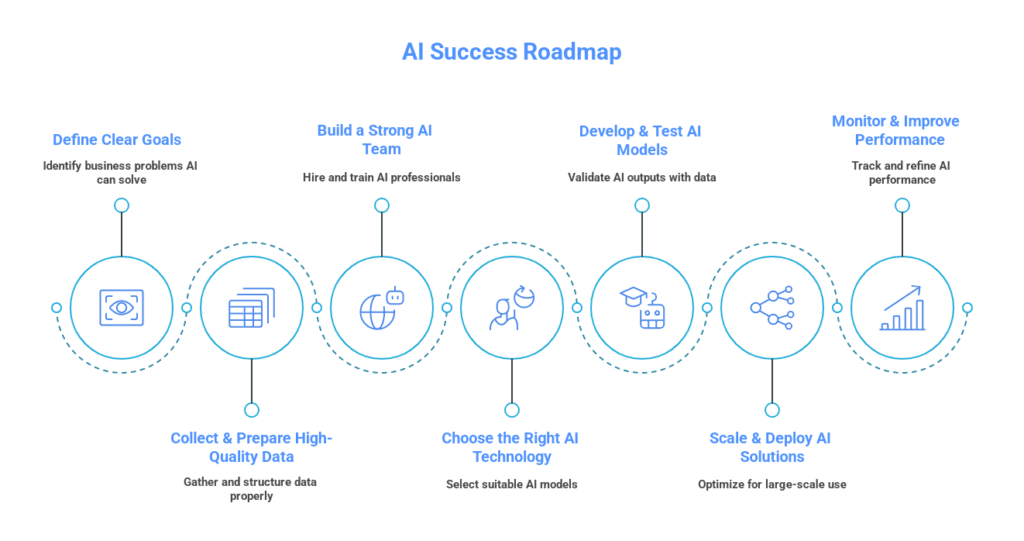

Artificial Intelligence is an emerging paradigm across industries, bringing automation to processes, supporting decision-making, and sometimes creating new ideas. However, many AI projects fail to satisfy expectations, despite apparent ability and opportunity.
According to a McKinsey report, only about 10% of AI projects go full-scale and become successful. Knowing why AI projects fail and implementing some best practices can dramatically increase the chances of project success.
Most organizations rush toward AI without setting clearer objectives. They buy AI tools and technologies without appraising their purpose. This leads to a disconnect between the AI system and business needs.
Solution:
Data is the spinal cord of the AI model. Incase incomplete, biased, or inconsistent data enters the AI system, it yields wrong or misleading results.
Solution:
Computational power, storage, and software tools are necessary for AI applications. Unfortunately, a lot of businesses find themselves lacking the infrastructure to fully support AI operation.
Solution:
The biggest skill gap in the AI sector is its lack. Skilled AI professionals such as data scientists, Machine Learning engineers, and AI strategists are much in demand, yet they are not plentiful.
Solution:
AI solutions ought to integrate freely into existing business workflows. Frequently, there may be resistance to AI adoption from employees because it threatens to replace their jobs or out of ignorance.
Solution:
Many organizations still hope for wreaking results too fast-an expectation hardly met in practice. AI is a slow, grueling process of training data, finetuning appropriate models, and gradual optimization through implementation in a production environment.
Solution:
Bias, lack of transparency, and data privacy issues can kill AI adoption. The regulations empower stringent rules on data utilization such as GDPR and CCPA.
Solution:

More than a trend, the transformation wrought by AI is being felt in industries all over the world. The good news is: when implemented successfully, AI means:
Expectation vs. Reality
The thought process for AI is a rather long timeline. Businesses must learn continuously, rather than expect results overnight.
Ethical Concerns
With fairness, privacy, and transparency at its core, developers and deployers must be ethical.
User Adoption
Users will appreciate the value of AI tools only when employees and key decision-makers actively engage with them.
Integration Issues
Optimizing the existing workflow rather than compounding it will be the way AI should work.
If those challenges are addressed and best practices embraced, companies can achieve qualitative outcomes using AI.
Wherever there are challenges for AI to overcome, with planning, strategic execution, and continuous improvement, there will be success. It goes without saying that organizations must ensure that their AI projects are contributing to business objectives, that investment in quality data is essential, that strong AI teams are built, and that expectations are managed realistically. By addressing these challenges and focusing on responsible AI implementation, companies can overcome the reasons why AI projects fail and achieve sustainable growth powered by AI.
Are you willing to get on board with AI? Call us today at WebOsmotic to discuss tailored AI solutions for your business.